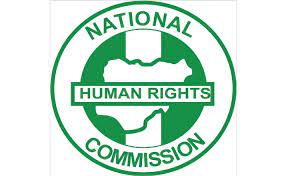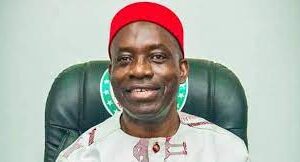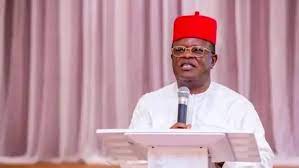In the report, TOPE SUNDAY seeks to know whether or not the once-active National Orientation Agency (NOA) is still relevant in enlightening Nigerians about the federal government’s programmes and policies as it appears to have gone to sleep.
Established by Decree 100 of 1993, the National Orientation Agency of Nigeria is the body tasked with communicating government’s policies, staying abreast of public opinions, and promoting patriotism, national unity, and development of Nigerian society.
Its objectives are to ensure that the government programmes and policies are better understood by the general public and to mobilise favourable public opinions for such programmes and policies. Also, it is expected to encourage informal education through public enlightenment activities and publications.
Similarly, the 30-year-old agency is designed to establish feedback channels for the government on all aspects of Nigerian national life; foster respect for constituted authority, and instill in the citizens a sense of loyalty to the fatherland. Furthermore, it is to establish an appropriate national framework for educating, orientating, and indoctrinating Nigerians towards attitudes, values, and culture that project individual national pride and a positive national image for the country.
Prolonged silence
However, the agency appears to be dormant because, unlike in the past, it has remained silent to orientate Nigerians about the programmes and policies of the federal government.
For instance, during the fuel scarcity brouhaha, the agency would be silent on the causes and how Nigerians who are hoarding the PMS product should have a change of heart for the peace, stability, and progress of the country.
Also, the agency displayed a lukewarm attitude during the Naira scarcity that shook the country early this year.
Recall that during the naira scarcity regime, though the agency spoke about the CBN policy, it was not loud enough as it only collated the feedback received from its field officers who related with citizens nationwide. In its report, it submitted that a large number of Nigerians had a wrong perception of the naira redesign policy of the Central Bank of Nigeria.
Though it canvassed efforts to create more awareness of the policy, much was not later done till the Supreme Court bailed the country out of the hardship brought about by the naira policy.
Losing relevance?
Speaking with this reporter, a public analyst, Comrade Sunday Alifia, said the agency has lost its vibrancy and urged that professionals should be appointed to man it.
“The National Orientation Agency (NOA)has lost the vibrancy and the purpose to which it was established and as noted during the tenure of Professor Jerry Gana who was its pioneer helmsman. It is very unfortunate and again I don’t blame the agency or those who are at the helm of affairs currently.
“The reason is that they are incapacitated; they are Nigerians and politicians to the core, they want to protect their jobs, and they must dance to the whims and caprices of their employers. Just like the issue of some other agencies in the country, NOA can’t be different in its operations due to this huge influence or interest from the presidency.
“Take the issue of fuel scarcity and Naira redesign policies, for instance; the two policies are from the federal government and what do you expect the agency to say? Is it to sensitise Nigerians to accept fake policy? Yes, but there is a level at which it could go. I am not backing it, but the fact is that the government censors the agency and dictates what it should say, when, and what not to say to project or hide its ineptitude.
“Nigerians had expected that the agency would have come out with well-articulated public enlightenment jingles on the most recent monetary policy of the Central Bank of Nigeria (CBN) and the removal of fuel subsidies, for instance, but nothing as usual.
“The government should be truthful about what it does, and it should empower the agency with whatever is required and again allow it to operate independently. Also, the government should be committed to the course of Nigeria and, of course, NOA would have an undiluted gospel to pass to Nigerians. Lastly, professionals and not politicians should be appointed to man the agency.”
Needs re-jigging
On his part, a lecturer at the Department of Political Science, Federal University, Oye-Ekiti, Mr. Femi Fayomi, told Blueprint Weekend that the agency is now dormant. He called on President Bola Ahmed Tinubu to, as a matter of urgency, re-jig it.
Fayomi said: “The National Orientation Agency was established by the Babangida administration as an agency of the government to sensitise the citizens on the government’s policies and programmes as well as stimulate the spirit of patriotism in them.
“However, the institution has been dormant in the last few years suggesting that it has lost steam or is no longer relevant in rent time. This is ironic because it is in a democratic dispensation that her activities are supposed to be more pronounced.
“NOA is to sensitise the citizens to topical policies of the government by engaging in advocacy. It is considered that the moribund posture of the agency may not be unconnected with neglect and paucity of funds as successive administrations since the return to civil rule have not been proactive in enhancing and strengthening the operation of the agency.
“The Tinubu administration should, as a matter of urgency, re-jig the agency to assist it in showcasing the efforts of the administration in renewing the hopes and aspirations of Nigerians that seem dashed in the light of the reforms of his administration with regards to subsidy removal.”
Still relevant, but…
However, an Associate Professor of Mass Communication, Rasaq Adisa, said NOA was still relevant.
Adisa, who is of the Department of Mass Communication, University of Ilorin, said: “The National Orientation Agency (NOA) in Nigeria by the Law establishing it is supposed to play a crucial role in disseminating information, promoting national unity, and fostering positive attitudes among citizens.
“However, the perceived dormancy of the agency in addressing critical national issues, such as the challenges surrounding fuel subsidy removal, Naira redesign, and critical issues raises questions about its relevance.
“To me, NOA is still very relevant and even more relevant now that Nigeria is confronting many vices. Therefore, to reawaken the agency and enhance its effectiveness, the government can consider the following steps: Strategic Leadership and Management: Ensure that the agency is led by individuals with a strong vision, strategic thinking, and effective management skills.
“Luckily, President Tinubu has appointed a DG, Lanre Issa-Onilu, whom I strongly believe has the track record of successful public engagement, idea, and willpower to drive the agency’s mandate.
“Public Awareness Campaigns: Design and implement public awareness campaigns on key national issues frequently through various communication channels. Training and Capacity Building: Invest in training and capacity building for NOA staff to enhance their skills in communication, public relations, and crisis management.
“This will empower them to address national issues more effectively and respond to the changing dynamics of public discourse. Collaboration with Stakeholders: Foster collaboration with relevant stakeholders, including government agencies, civil society organisations, and the media. Building partnerships can amplify the impact of NOA’s messages and ensure a coordinated response to national challenges.
“Research and Data Analysis: Contact and use academics to conduct thorough research on public opinion and perceptions regarding critical national issues. Use data-driven insights to tailor communication strategies that resonate with the concerns and perspectives of the citizens.
“Public-Private Partnerships: Encouraging partnerships between the NOA and private organizations can enhance the reach and effectiveness of its campaigns. Private sector entities can contribute resources and expertise to support the agency’s initiatives.
“By taking these steps, the government can reinvigorate the National Orientation Agency, making it more responsive, adaptive, and relevant in addressing contemporary challenges and crises. The agency needs to evolve with the changing dynamics of communication and public engagement to effectively serve its purpose in the national development agenda just as we experienced in the days of MAMSER.”




